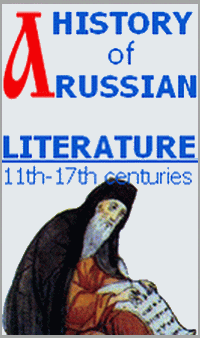XXI. HUEXOTZINCAYOTL.
|
XXI. A SONG OF THE HUEXOTZINCOS.
|
|
Viniendo los de Huexotzinco а pedir socorro а Moteuczoma Tlaxcalla.
|
Coming to Ask Aid of Montezuma Against Tlaxcalla.
|
|
1. Tlacuiloltzetzeliuhticac moyoliol tiMoteuczomātzi
nichuicatihuitz nictzetzelotihuitz y o huetzcani
xochinquetzalpapalotl moquetzalizouhtihuitz noconitotia
chalchiuhatlaquiquizcopa niyahueloncuica chalchiuhhuilacapitzli
nicteocuitlapitza ya ho ay la ya o haye ohuichile amiyacale.
|
1. Raining down writings for thy mind, O Montezuma, I come hither, I
come raining them down, a very jester, a painted butterfly; stringing
together pretty objects, I seem to be as one cementing together
precious stones, as I chant my song on my emerald flute, as I blow on
my golden flute, ya ho, ay la, etc.
|
|
2. Ohuaya ye onniceelehuia moxochiuh aya ipalnemoani yehuayā Dios
aya ilihuāca nahuiche nictzetzeloaya noncuicatilo yaha y.
|
2. Yes, I shall cause thy flowers to rejoice the Giver of Life, the
God in heaven, as hither I come raining down my songs, ya ho.
|
|
3. Tozmilini xochitl in noyolyol ay yahue tozmilini xochitl noteponaz
ayanco ayancayome oncana y yahue nicxochiamoxtozimmanaya itlatol
ayanco ayanca yomeho.
|
3. A sweet voiced flower is my mind, a sweet voiced flower is my
drum, and I sing the words of this flowery book.
|
|
4. Xompaqui xonahuia annochipanicantiyazque ye ichano
nohueyetzinteuctli Moteuczomatzi, totlaneuh tlpc totlaneuh uelic
xochitl o ayanco.
|
4. Rejoice and be glad ye who live amid the flowers in the house of
my great lord Montezuma, we must finish with this earth, we must
finish with the sweet flowers, alas.
|
|
5. Tlachinoltepec yn ahuicacopa tixochitonameyo timoquetzaco y yehuan
Dios a ocelozacatl ypan quauhtli choca ymopopoyauhtoc y yanco y liyan
cay yahue ayli y yacalco y ya y ycho zaca y yahue.
|
5. At the Mount of Battle we bring forth our sweet and glittering
flowers before God, plants having the lustre of the tiger, like the
cry of the eagle, leaving glorious memory, such are the plants in
this house.
|
|
6. Ohuaya yehe nipa tlantinemia ixpan Dios a
ninozozohuayatlauhquechol, zaquan quetzal in tlayahualol papalotl
mopilihuitzetzeloa teixpana xochiatlaquiquizcopa oh tlatoca ye nocuic
y yanco ili, etc.
|
6. Alas! in a little while there is an end before God to all living;
let me therefore string together beauteous and yellow feathers, and
mingling them with the dancing butterflies rain them down before you,
scattering the words of my song like water dashed from flowers.
|
|
7. Nehcoya ompa ye nihuithuiya xoxouhqui hueyatla ymancan zanniman
olini pozoni tetecuica ic nipa tlania, zan iquetzal in tototl
xiuhquechol tototl no chiuhtihuitz’y ni yahuinac ya Huexotzinco
Atzalan ayome.
|
7. I would that I could go there where lies the great blue water
surging, and smoking and thundering, till after a time it retires
again: I shall sing as the quetzal, the blue quechol, when I go back
to Huexotzinco among the waters (or, and Atzalan).
|
|
8. Zan niquintocaz aya niquimiximatitiuh nohueyotzitzinhuan
chalchiuhquechol y canca xiuhquechol in teocuitlapapalotl in
cozcatototl ontlapia ye onca Huexotzinco Atzalan ayame;
|
8. I shall follow them, I shall know them, my beloved Huexotzincos;
the emerald quechol birds, the green quechol, the golden butterflies,
and yellow birds, guard Huexotzinco among the waters (or, and
Atzalan).
|
|
9. Xochi Atzalaan teocuitlaatl chalchiuhatl y nepaniuhyan itlatoaya
in quetzalcanauhtli quetzalnocuitlapilli cuecueyahuaya yliya yliya
yaho ayli yaho aye huichile anicale.
|
9. Among the flowery waters, the golden waters, the emerald waters,
at the junction of the waters which the blue duck rules moving her
spangled tail.
|
|
10. Huecapan nicac nicuicanitl huiya zaquan petlatolini, ma nica
yeninemia nicyeyectian cuicatla in nic xochiotia yayaho yahii.
|
10. I the singer stand on high on the yellow rushes; let me go forth
with noble songs and laden with flowers.
|
NOTES FOR SONG XXI.
The occurrence to which this poem alludes took place about the year
1507. The chroniclers state that it was in the early period of the
reign of Montezuma II, that the natives of Huexotzinco, at that time
allies of the Mexicans, were severely harassed by the Tlascallans,
and applied, not in vain, to their powerful suzerain to aid them.
(See Tezozomoc, Cronica Mexicana, cap. 97.)
The poet does not appear to make a direct petition, but indirectly
praises the grandeur of Montezuma and expresses his own ardent love
for his native Huexotzinco. The song would appear to be used as a
delicate prelude to the more serious negotiations. It is one of the
few historical songs in the collection. From the references in verses
1 and 3 we infer that this singer held in his hand the painted book
from which he recited the couplets. This may explain the presentation
of the piece.
1. huetzcani; one who laughs, a jester, perhaps the designation of
one who sang cheerful songs.
chalchiuhatlaquiquizcopa; a. word of difficult analysis. I suspect
an omission of an l, and that the compound includes tlaquilqui,
one who fastens and puts together, a mason, etc.
5. The sense is that the warriors of Montezuma when on the field of
battle, shine in their deeds like beautiful flowers in a field, and
win lasting fame by their exploits.
mopopoyauhtoc. The grammarian Olmos explains the reflexive verb
mopopoyauhtiuh to signify “he leaves an honored memory of his
exploits.” See Simйon, Dictionaire de la Langue Nahuatl, sub voce.
7. Huexotzinco atzalan; “Huexotzinco amid the waters.” This
expression, repeated in verse 8, appears inappropriate to the town of
Huexotzinco, which lies inland. In fact, the description in verse 7
applies to Tenochtitlan rather than the singer’s own town. But the
text does not admit this translation. Perhaps we should read
“Huexotzinco and Atzalan,” as there are yet two villages of that name
in the state of Puebla (which embraced part of ancient Huexotzinco).
10. petiatolini, I have derived from petlatl, suspecting an error
in transcription. The reference is to the rushes in the mat on which
the singer stood.
Tagged as: Nahua


